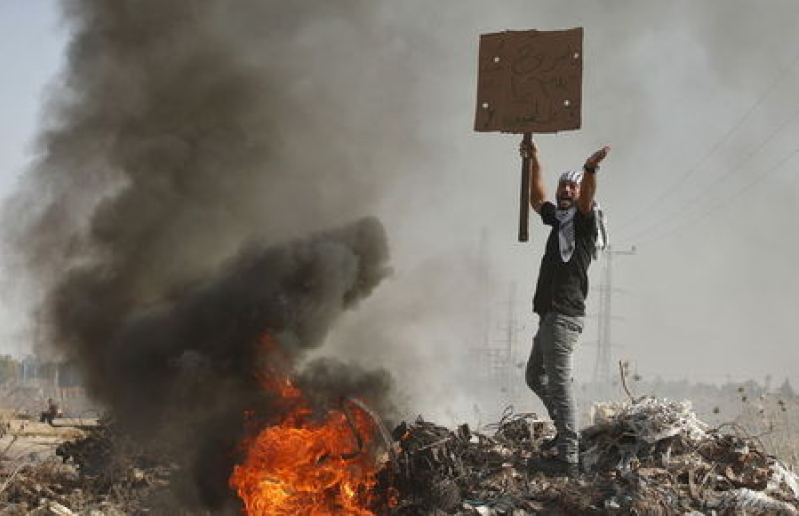
Palestinian factions called for mass rallies against Israel in the occupied West Bank and East Jerusalem in a "day of rage" on Friday, as world and regional powers pressed on with talks to try to end more than three weeks of bloodshed.
Hours after the announcements, a Palestinian stabbed and wounded an Israeli soldier in the West Bank, before being shot and wounded by other troops, the Israeli military said, part of a wave of violence that has killed around 60 people.
U.S. Secretary of State John Kerry said he was cautiously optimistic there was a way of defusing the tensions after holding four hours of talks with Israeli Prime Minister Benjamin Netanyahu in Berlin on Thursday.
Israeli authorities also lifted restrictions on Friday that had banned men aged under 40 from using the flashpoint al-Aqsa mosque compound in Jerusalem's Old City - a move seen as a bid to ease Muslim anger.
One of the worst waves of street violence in years was triggered in part by Palestinian anger over what they see as Jewish encroachment on the compound, Islam's third holiest site, which is also revered by Jews as the location of two ancient temples.
The calls for mass protests were backed by both Palestinian militant group Hamas and the Fatah movement of Western-backed President Mahmoud Abbas, as well as other factions.
Hamas, the Islamist movement which controls the Gaza Strip, issued a statement calling on "angry Palestinians to take part in the mass rallies at the Friday of rage and new confrontation against occupation (Israeli) soldiers."
The Palestinians seek a state in East Jerusalem, the West Bank and the Gaza Strip, territories Israel captured in the 1967 Middle East war.
TEENAGERS
While the political factions have been active in calling for protests, the stabbings and shootings mostly have been carried out by "lone wolf" attackers, some inspired by social media postings and many of them teenagers.
The family of the Palestinian who stabbed the Israeli soldier on Friday said he is 16 years old.
Fifty Palestinians, half of them assailants, have been shot dead at the scene of attacks or during demonstrations in the West Bank and Gaza since Oct. 1. Nine Israelis have been stabbed or shot dead over the same period.
One Israeli was killed by soldiers who mistook him for an attacker, and an Eritrean migrant was beaten and shot dead by a crowd of Israelis who thought he had taken part in a shooting.
Kerry was expected to hold meetings on Saturday with Amman Abbas and Jordan's King Abdullah, who has a role as a custodian of the Muslim holy sites in Jerusalem. One of Kerry's goals is to reinforce the status quo at Al Aqsa, which has long banned non-Muslim prayer at the site. Netanyahu says Israel has not changed the status quo and has no intention of doing so.
An Israeli government source said Netanyahu told Kerry in their meeting that to curb violence, Abbas and King Abdullah should publicly declare the status quo has not changed.
A spokesman for Netanyahu would not confirm the prime minister made such a demand.
On Thursday Israeli police said an Israeli who went on a stabbing rampage two weeks ago, wounding four Arabs in the southern town of Dimona, would be charged with aggravated assault rather than terrorism-related charges.
At the time, Israeli politicians described the Israeli's actions as "terrorism" and said he should be treated like any other attacker. The lesser charges are likely to fuel the sense among Palestinians that Israel applies double standards.
Palestinians are also angry at what they see as excessive use of force by Israeli police and soldiers, with many attackers shot dead at the scene when they might have been detained.
The European Union's senior diplomat Federica Mogherini said the "Quartet" of Middle East peace mediators would meet in Vienna on Friday to urge Israeli and Palestinian leaders to tone down their rhetoric and calm down the situation on the ground.
(Reporting by Maayan Lubell, Ali Sawafta in Ramallah, Nidal al-Mughrabi in Gaza; Writing by Maayan Lubell; Editing by Andrew Heavens and Dominic Evans)






